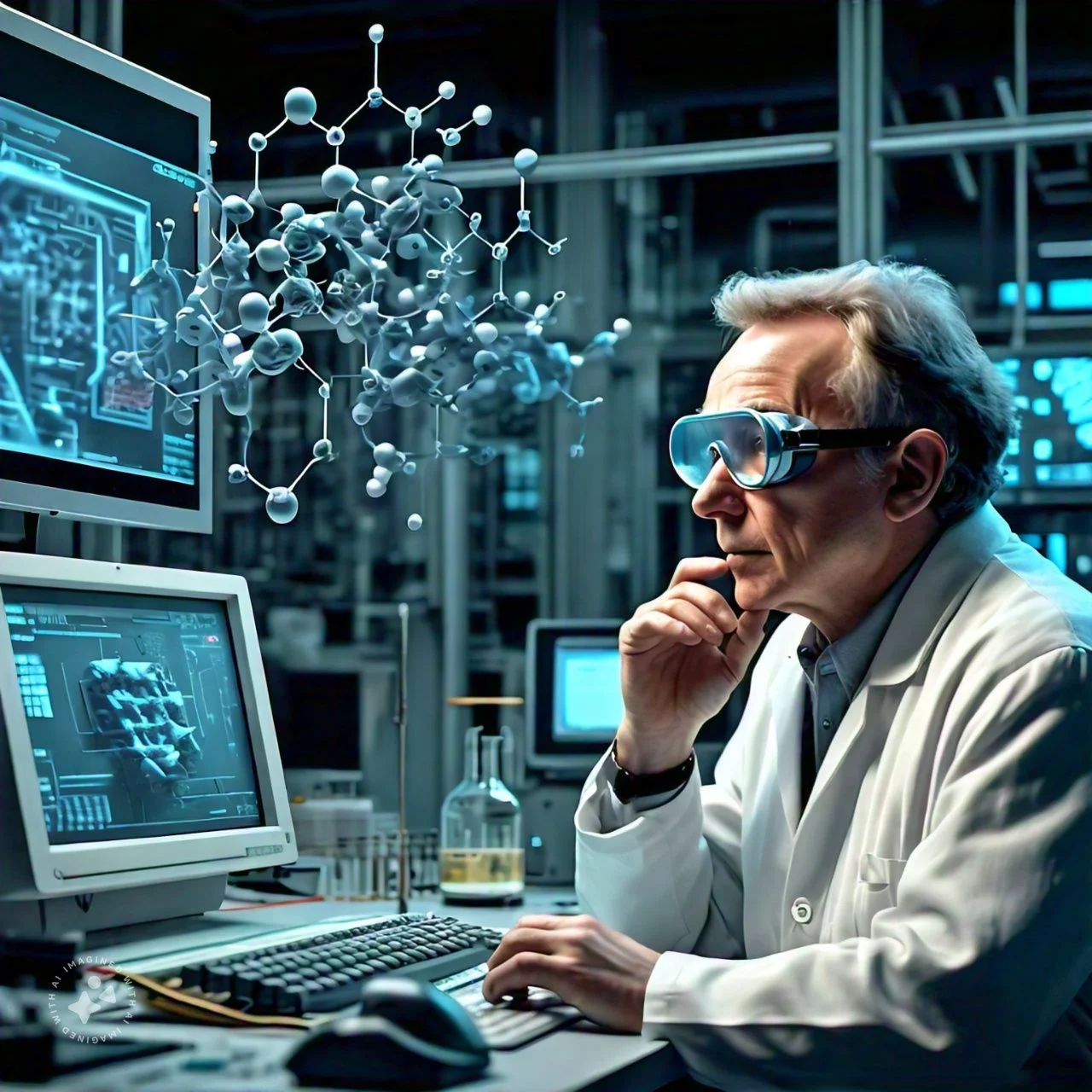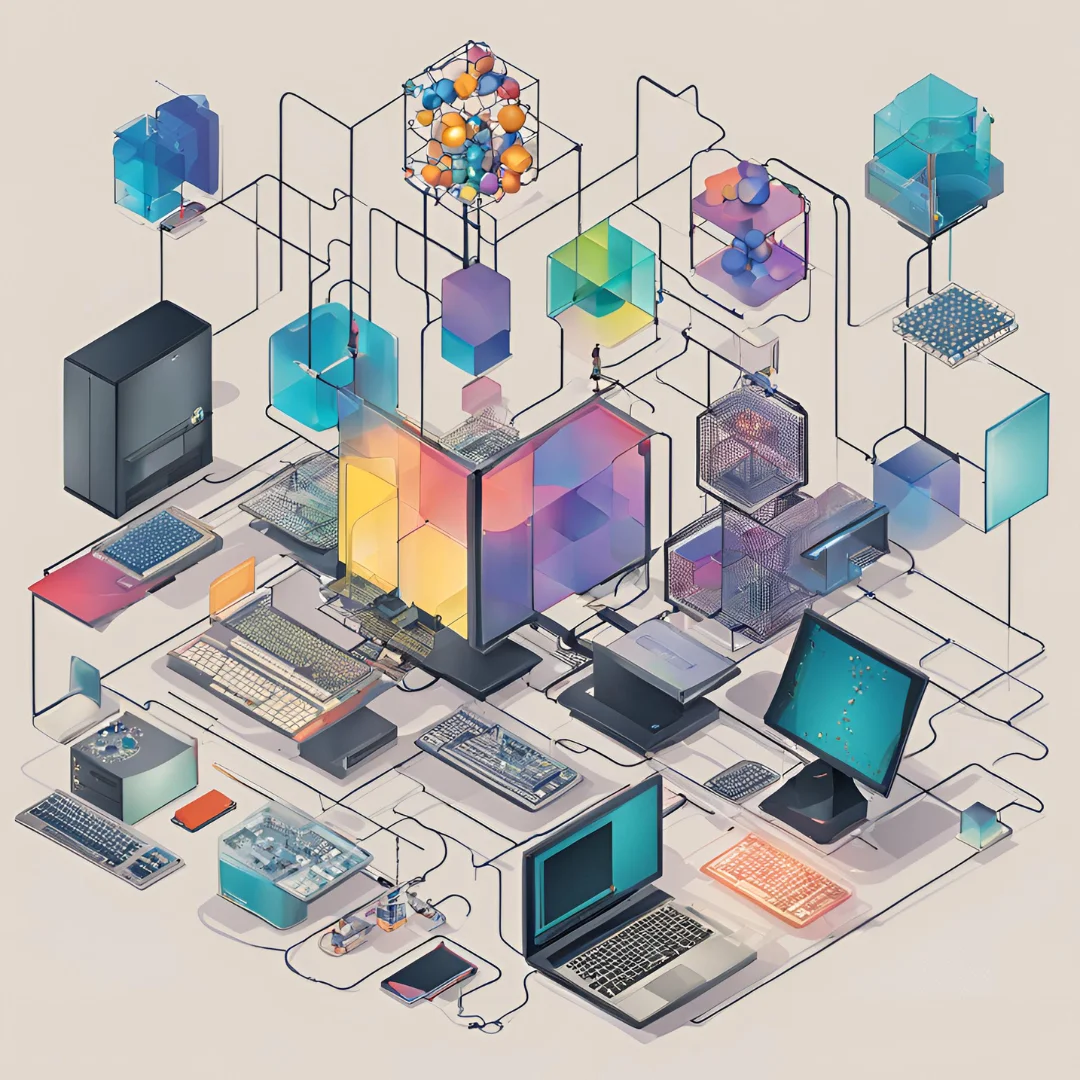How Molecular Computing is Redefining AI’s Future
Publish By:- CodeInputs
In the ever-evolving landscape of technology, one innovation stands poised to revolutionize the future of artificial intelligence (AI) in ways previously unimaginable: molecular computing. This emerging field leverages the principles of chemistry and molecular biology to perform computations at a scale and efficiency far beyond conventional silicon-based systems. As we stand on the cusp of this new frontier, it’s clear that molecular computing holds the potential to redefine AI, pushing the boundaries of what machines can achieve.
Understanding Molecular Computing
Molecular computing utilizes molecules as the fundamental units of computation. Unlike classical computing, which relies on transistors and binary code, molecular computing operates on the behavior of molecules and their interactions. This approach allows for a new kind of processing power that can handle complex calculations and data storage with remarkable efficiency.
Key to this technology are DNA computing and other biocomputing techniques. DNA computing involves using DNA strands to encode information and perform calculations through biochemical reactions. This method takes advantage of the vast number of parallel processes that DNA can undertake simultaneously, offering exponential computational power compared to traditional systems.
The Promise for AI
- Enhanced Processing Power: One of the most significant advantages of molecular computing is its potential to vastly increase processing power. Traditional computers rely on a sequential processing model, which can be limiting for complex AI tasks. Molecular computing, with its ability to perform multiple calculations simultaneously, can accelerate AI processes, leading to faster and more efficient problem-solving.
- Energy Efficiency: Energy consumption is a growing concern in the tech industry, particularly with the increasing demands of AI. Molecular computing could address this issue by significantly reducing the energy required for computations. Since biochemical processes are inherently more energy-efficient than electronic ones, molecular computing systems could lead to more sustainable AI technologies.
- Miniaturization and Integration: The miniaturization of computational components is another exciting prospect. Molecular computing promises the ability to pack immense processing power into incredibly small spaces. This could lead to the development of compact and highly efficient AI devices, making advanced AI capabilities more accessible and integrated into everyday technology.
- Advanced Problem Solving: Molecular computing’s capacity for handling complex and massive datasets could enhance AI’s ability to solve intricate problems. From modeling complex biological systems to simulating large-scale environmental changes, molecular computing could provide the computational power needed for breakthroughs in various scientific fields.
Real-World Applications
The potential applications of molecular computing in AI are vast and varied. In healthcare, for instance, molecular computing could revolutionize drug discovery by analyzing complex biological interactions at a molecular level, leading to faster development of new treatments. In environmental science, it could enable more accurate climate modeling and predictions, helping to address pressing global challenges.
Furthermore, molecular computing could enhance AI's capabilities in areas like pattern recognition and machine learning. By processing information in parallel and handling vast amounts of data with high efficiency, AI systems could become more adept at identifying patterns, making predictions, and learning from complex datasets.
Challenges and Future Prospects
While the promise of molecular computing is exciting, there are still significant challenges to overcome. Research in this field is ongoing, and practical, scalable implementations of molecular computing are still in development. Issues such as error rates in biochemical processes, integration with existing technologies, and the overall cost of development are areas that need to be addressed.

Despite these challenges, the future of molecular computing looks bright. As research advances and technology evolves, we can expect to see more tangible applications and breakthroughs that will push the boundaries of AI. The integration of molecular computing into AI could usher in a new era of technological innovation, transforming industries and redefining what machines can achieve.
Conclusion
Molecular computing represents a transformative leap in the realm of AI, offering unprecedented processing power, energy efficiency, and problem-solving capabilities. As this technology continues to develop, it has the potential to redefine the future of AI, unlocking new possibilities and driving innovation across various fields. Embracing this breakthrough could lead to a future where AI is more powerful, efficient, and integrated into our daily lives than ever before.
Recent Post
Recent Comment
No Comments to Show